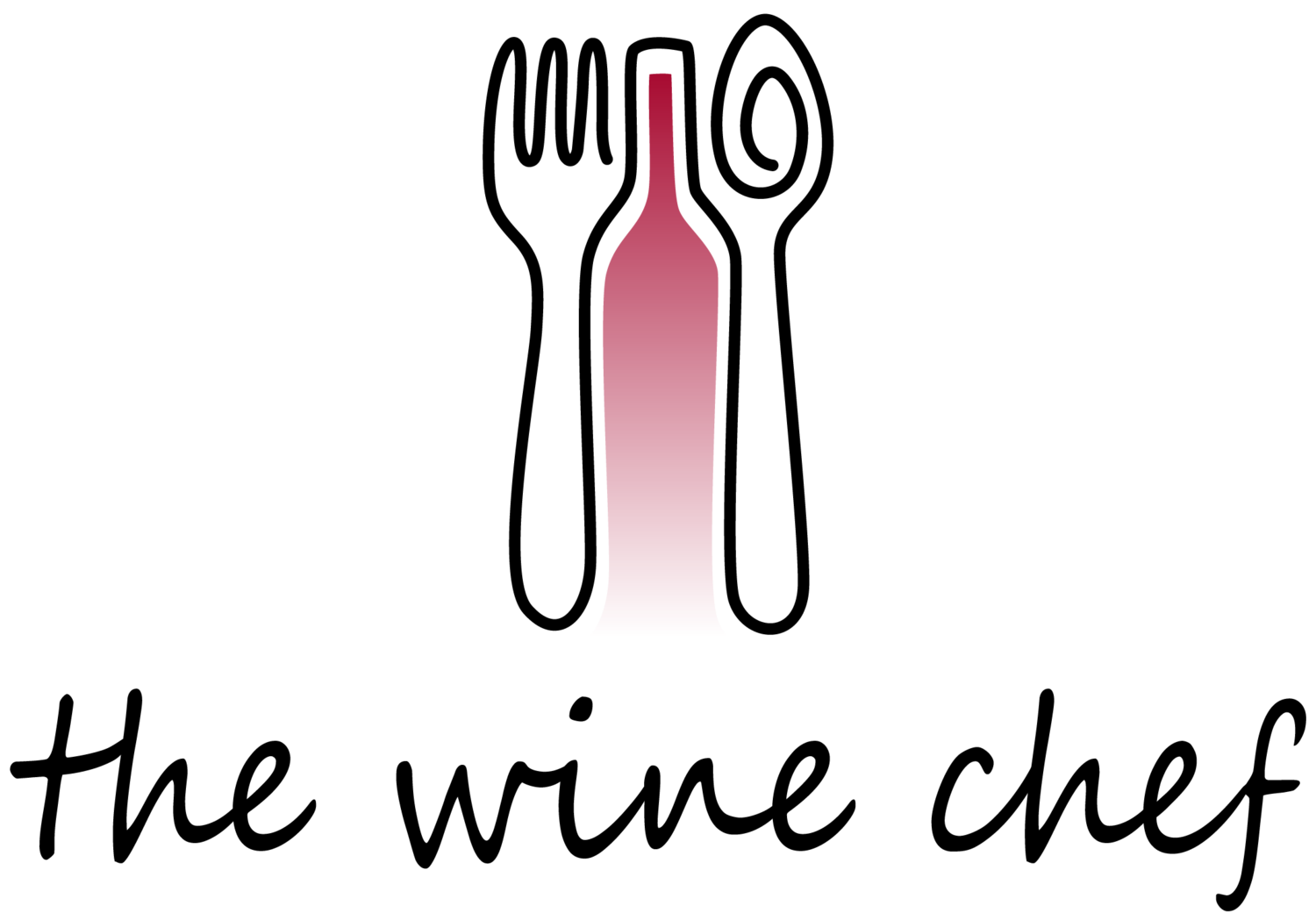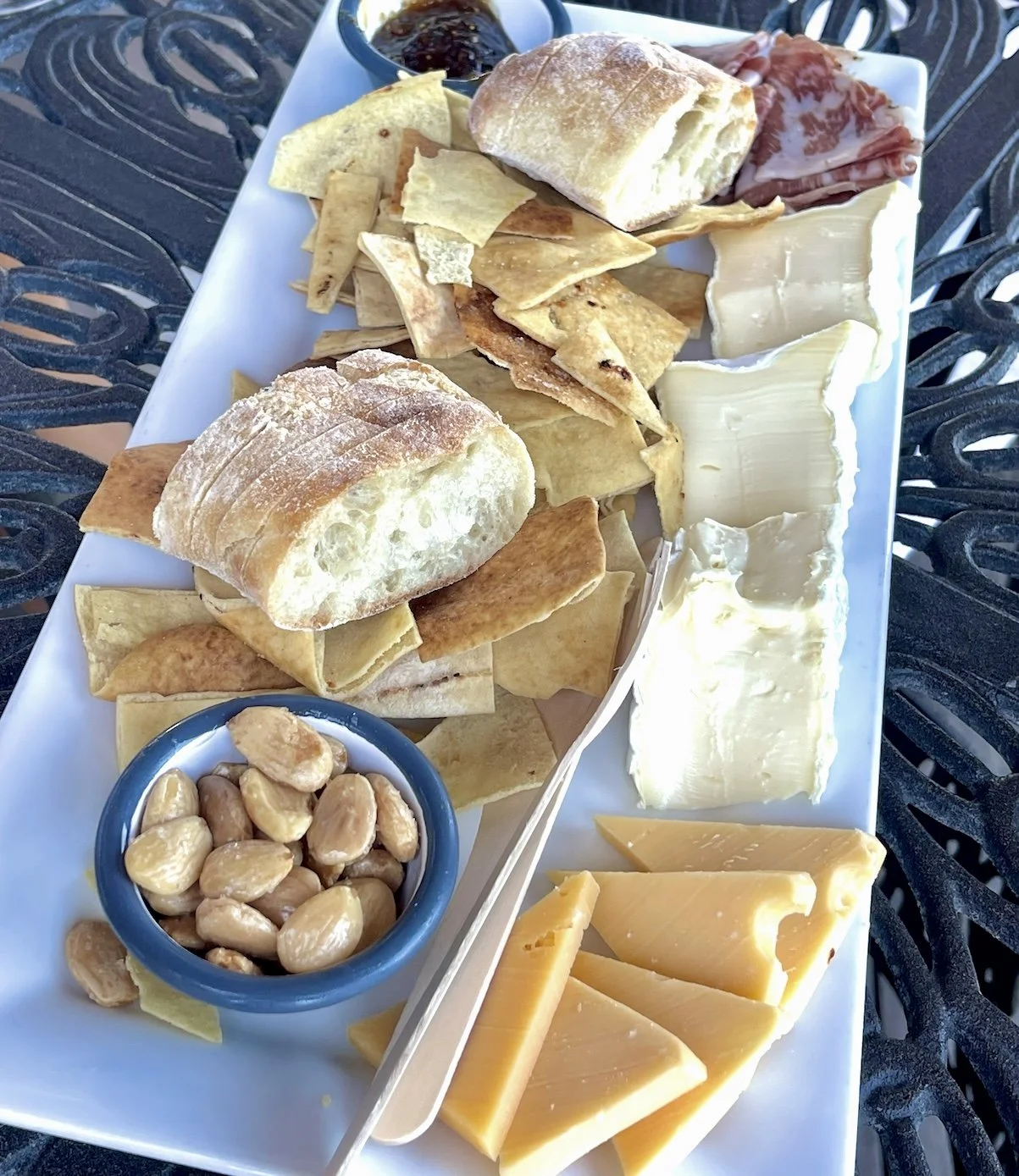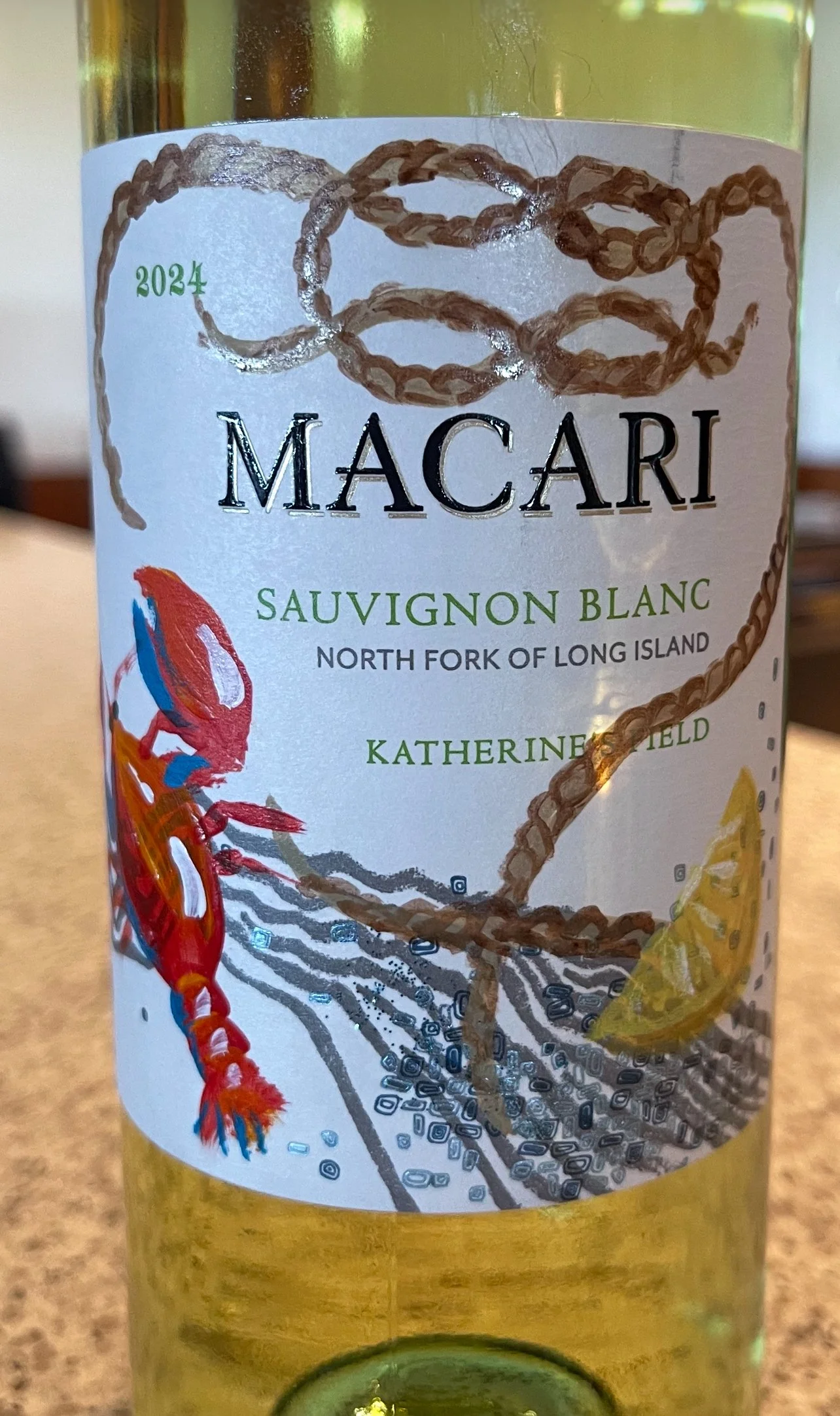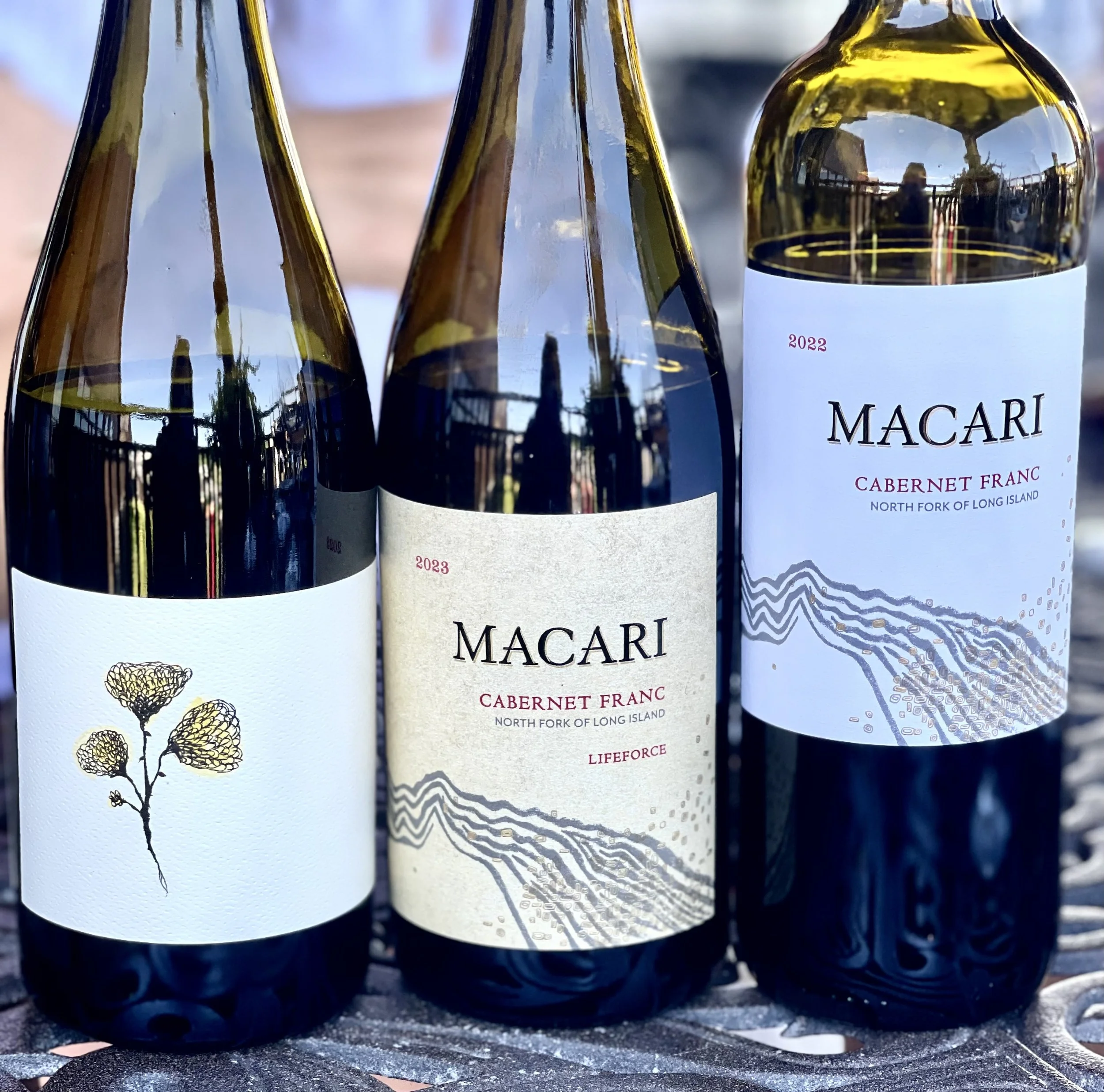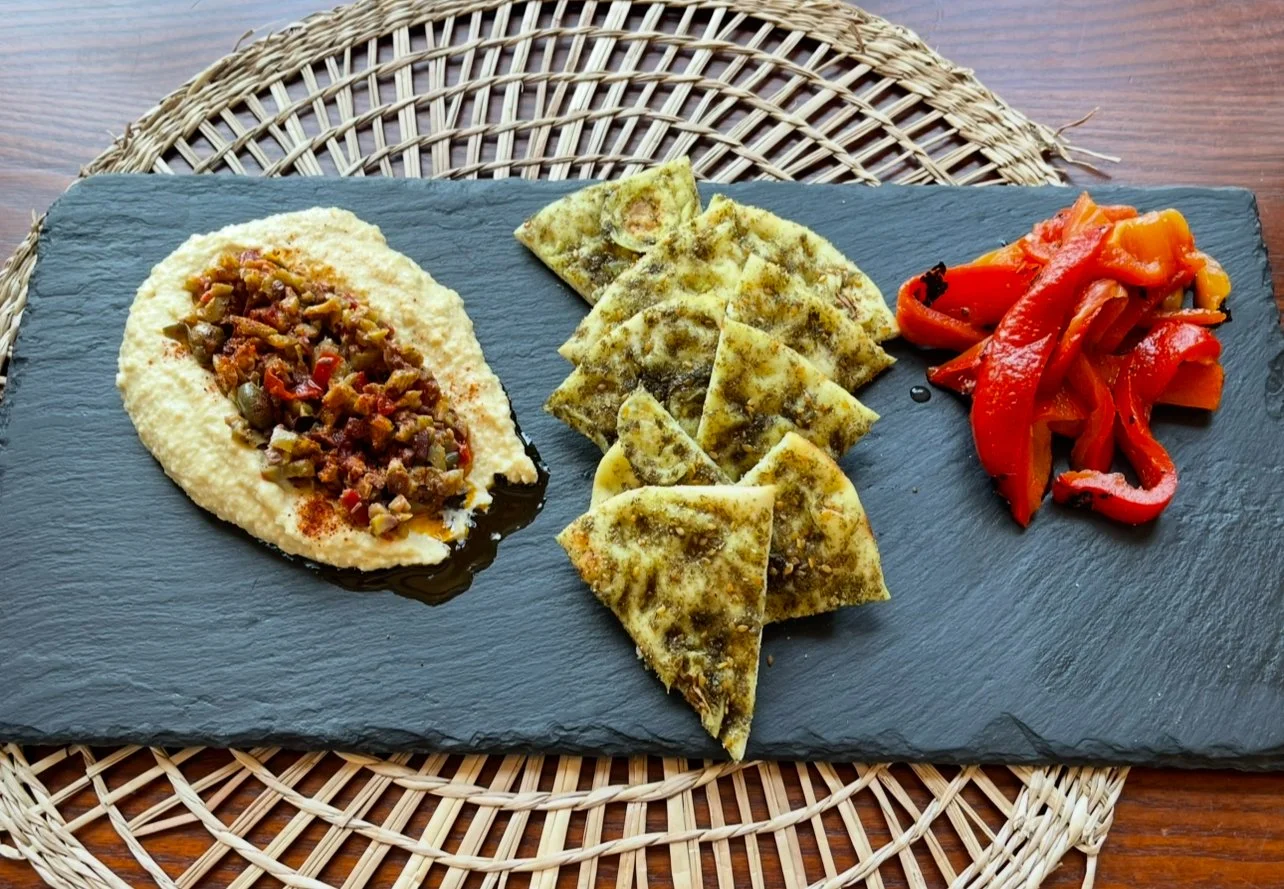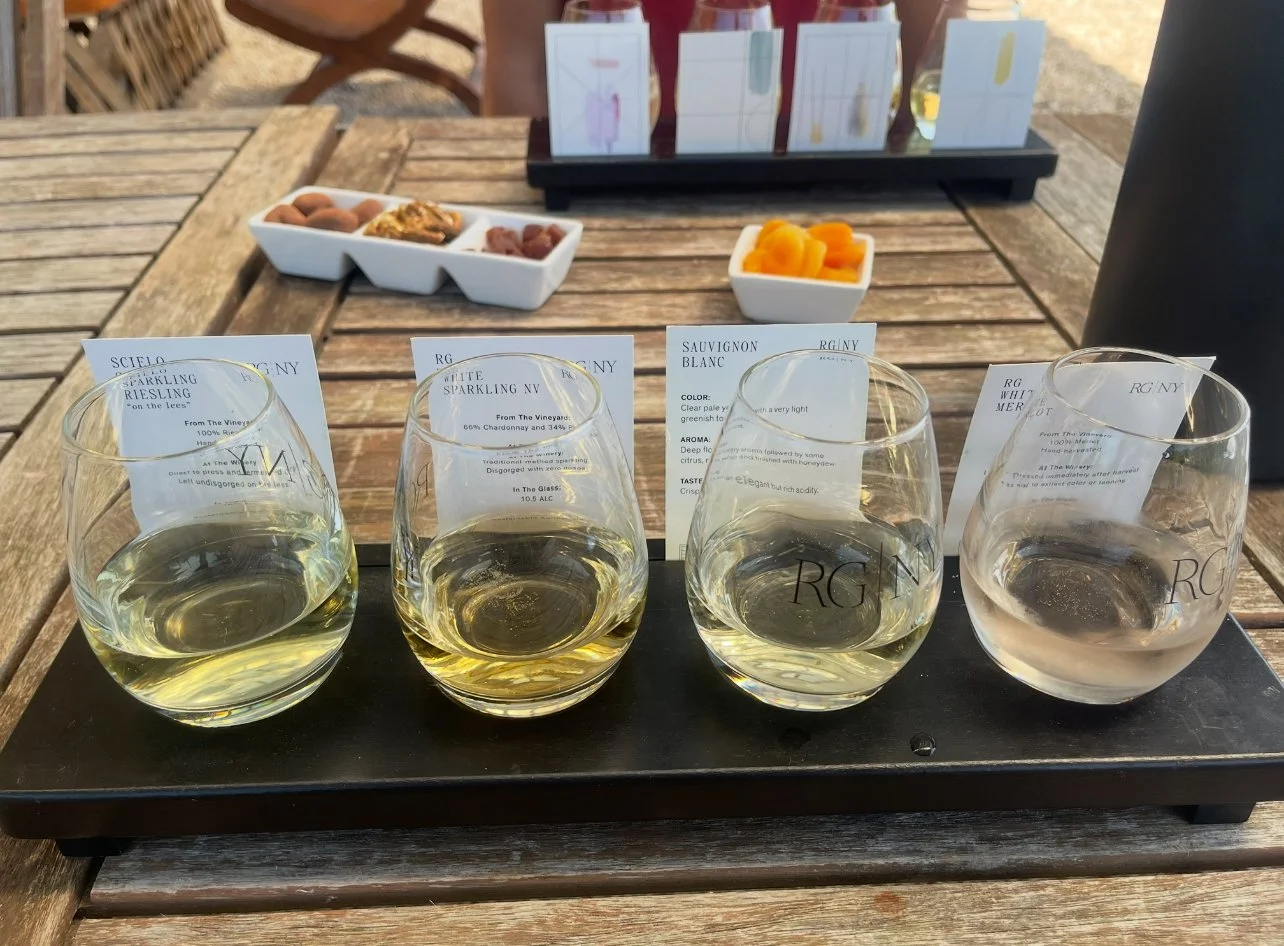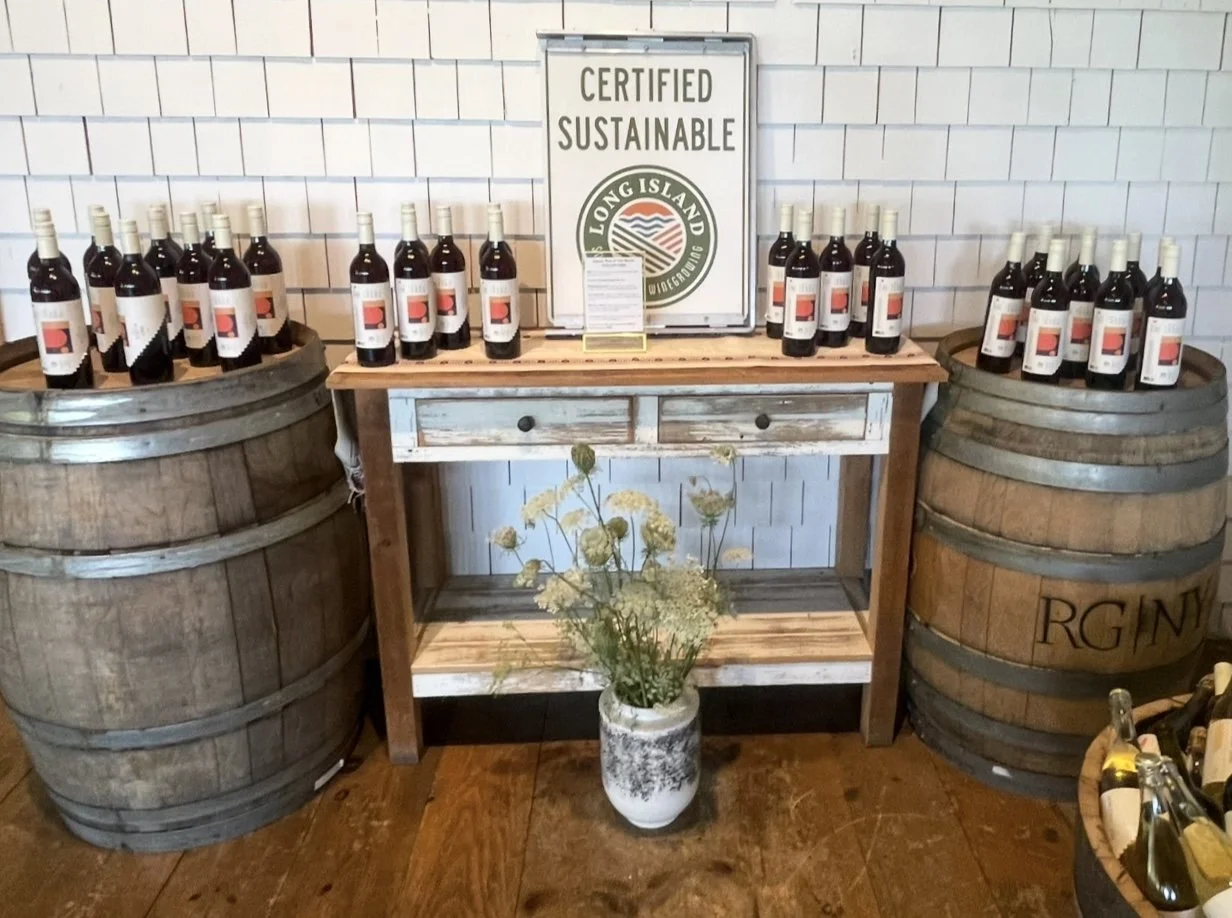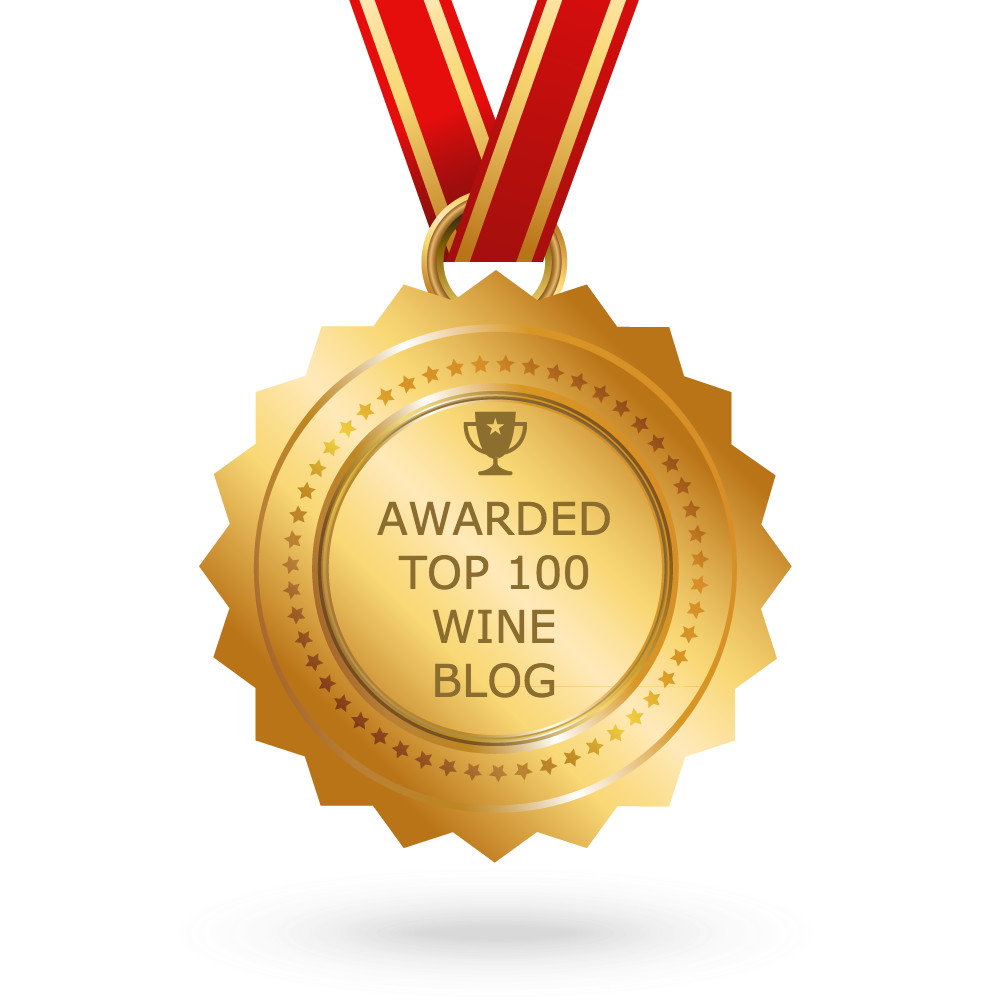Three Must-Visit North Fork Wineries
/Long known for its farms and fishing villages, the North Fork of Long Island has grown into one of New York’s most exciting wine regions. After spending a few weeks there this summer, what struck me most was how well the area’s down-to-earth, farm-country feel mixes with its laid-back, beachy vibe—so close yet so far away from the glittery Hamptons scene.
Farm stands line the roads, the beaches are quiet, and restaurants serve some of the freshest seafood around. Many spots feature North Fork wines, which makes eating out all the more fun, especially for a “when in Rome” kind of gal like me!
Pairing local foods with home-grown wines is a real treat—think Peeko oysters with a crisp Long Island Grüner Veltliner (yes, Austria has made it to New York!), and maple-honeyed duck alongside a Long Island Cabernet Franc. Even better, if you fall for a wine at dinner, chances are you can visit the winery the next day to check out what else they’re making.
Getting there is simple: you can drive from New York City in about two hours, or take the Long Island Rail Road to Greenport, or even hop a ferry from Connecticut for a scenic ride across the Sound.
When is the best time to go? Although I loved being there during the summer, I've heard that fall is also a great time to visit, with its crisp air, colorful foliage, and vineyards alive with the energy of harvest.
Here are three North Fork wineries that stand out, each showing what makes the region’s wine industry special: welcoming hospitality, strong family ties, a blend of tradition and innovation, and wines that reflect the land.
Note: Many NoFo (short for North Fork) tasting rooms are open daily. Plan ahead and be sure to make reservations, especially on weekends when tasting rooms fill quickly.
Macari Vineyards
Family-owned and operated, Macari Vineyards is one of the North Fork’s most beloved wineries. Founded in 1995, the estate spans 500 acres that have been in the Macari family for generations. Their farming practices follow biodynamic principles, utilizing composted fish waste from local markets, as well as coffee grounds and other organic materials to enrich the soil.
On a gorgeous, sunny afternoon, my daughters and I were warmly welcomed by Alexandra Macari, who shared stories of the early days and why they chose to farm differently from the conventional advice they had been given. “When we moved out here, we were given manuals from the Long Island Farmers Association,” she recalled. “They told us, ‘Just follow the schedule, spray the chemicals, and you’ll be fine.’ Joseph and I would be raising our four children here on the property, so we refused to spray chemicals.”
The tasting room, with its floor-to-ceiling windows and views of the vines, feels modern and inviting. That day, the patio was buzzing with groups savoring flights of dry rosé and crisp ‘Katherine’s Field’ Sauvignon Blanc. You can’t get a more NoFo vibe than this!
Photo: @macariwines. All other photos by Lisa Denning
Order the Delicious cheese and nuts to pair with Macari wines.
A Hand-painted label for the summer!
Cabernet Franc made in three styles: (left to right): whole cluster, partial carbonic, fermented and aged in concrete egg-shaped vessels, and aged in neutral oak barrels.
Visit macariwines.com for more information and to make a reservation.
Paumanok Vineyards
Founded in 1983 by Charles and Ursula Massoud, Paumanok is one of the North Fork’s original wineries. Charles and Ursula remain actively involved, but these days their three sons play key roles: Kareem leads the winemaking, Nabeel oversees the vineyards, and Salim manages the business side.
On a sunny afternoon (2025 is shaping up to be a great vintage!), my husband Joel and I were welcomed by Charles himself, a charming man with a twinkle in his eye and a treasure trove of memories. He poured us several wines while sharing stories from his years as a winemaker, recalling how Long Island was mostly potato farms back in the ‘80s when they were starting out.
Paumanok’s charming tasting room.
On the deck with Charles Massoud (at right)
The red lineup.
Paumanok’s delicious hummus platter
From the beginning, the family’s goal was to make the best wines possible, and by 1996, Paumanok’s reputation was firmly established when its 1997 Late Harvest Riesling was served at the White House. The wine was poured for the 50th anniversary of the signing of NATO, with President Clinton and 17 Heads of State in attendance. Since then, the winery has continued to produce some of the region’s most acclaimed wines.
The winery offers a range of tasting experiences, from their dry, crisp Chenin Blanc (a rarity in the region and still the benchmark for New York State) to their classic Bordeaux-style blends and special reserve bottlings that show the ageability of Long Island wines. Everything is estate-bottled, meaning the grapes are grown, harvested, fermented, and bottled right on the property.
The tasting room, set in a rustic yet elegant barn, and the deck overlooking the vines are ideal places to linger with a glass. The lovely setting is made even better by knowing that your visit supports an eco-friendly winery. Paumanok is certified by the Long Island Sustainable Winegrowing program, which evaluates pest management, worker treatment, and material sourcing, among other aspects. The winery has been fully solar-powered since 2017, thanks to a 51-kW solar array —a system of panels that generates enough electricity to meet all the winery’s energy needs.
Here’s a wine tasting tip: Don’t miss out on tasting Kareem Massoud’s latest project: a “minimalist cabernet franc,” fermented with wild yeast and without any added sulfites. This is a pure, juicy yet savory expression of the grape.
To learn more and book a visit: paumanok.com.
RGNY
RGNY might feel like one of the newer names on the North Fork, but the family behind it has been making wine for generations. The González family, originally from Parras, Mexico, started with their winery RGMX (the “RG” stands for Rivero González, and MX for Mexico). In 2018, they acquired their New York property, then Martha Clara Vineyards, and breathed new life into it as RGNY, bringing a fresh perspective to the region.
I met with Andres Guajardo, the international sales director, who summed up his take on Long Island wine perfectly: “Long Island is not a place for formula wines. The weather changes year to year, as do the wines. That’s a good thing, because what people want today is the expression of terroir, not the same thing every year.”
white wine tasting flight
RGNY’s portfolio includes classic Long Island grapes like Sauvignon Blanc and Cabernet Franc (one of my personal favorites), but also less typical bottlings like Albariño and Viognier. Two of my favorites during the tasting were the Scielo Sparkling Riesling and the RG White Sparkling NV, both fine examples of what the North Fork can do with bubbly. The tasting room, set in a big, barn-like space overlooking the vineyards, feels both stylish and welcoming.
Guajardo and winemaker Leo Mora drove me around the vineyards in a golf cart, stopping so we could hop out and taste almost-ripe grapes right off the vine, giving me a sense of how much intuition and precision go into choosing the perfect time to pick.
RGNY is certified sustainable under the Long Island Sustainable Winegrowing program
Before heading out, I took one last look at the vineyards stretching out in the afternoon light. I half-joked that maybe one day, my third daughter would get married right there. After all, RGNY hosts over 50 weddings a year, and it’s hard to imagine a more beautiful backdrop.
For more information and to request an appointment, visit rgnywine.com.
